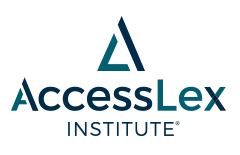Title
Why Don’t They Get It? Academic Intelligence and the Under-Prepared Student as ‘Other’
Document Type
Law Review Article
Publication Date
1-2011
Keywords
educational psychology and metacognition, knowledge barriers, bar passage, skills barriers
Abstract
Law teachers today face classes filled with students from a multitude of backgrounds with profoundly different learning styles, levels of academic preparation and readiness. The more traditional model of intelligence posits four or five learning styles that classify students in their primary learning mode, such as visual, kinesthetic and experiential. Gardner’s more recent notion of multiple “intelligences” more profoundly expands on learning styles by linking them with actual ability to learn and perform in a specific context. We propose an additional “intelligence” of sorts – “academic intelligence.” This intelligence refers broadly to a student’s actual level of “academic preparation,” i.e., a student’s readiness or ability to engage productively with an academic environment and to benefit from that interaction. We believe a student’s academic intelligence is about more than simply cognitive skills; it’s akin to culture, including not only cognitive, but also affective and social skills, all of which contribute to an entering student’s success in law school.
Our observation after years of teaching is that some students enter law school with a part of their “academic intelligence” missing or under-developed and these students are unsuccessful despite hard work and teacher’s best efforts. Teachers’ frustration with students’ inability to “get it" transforms these students into the “Other,” and therefore unknowable and unreachable on an academic level. This Essay concludes that “otherness” is not immutable, but rather is amenable to various teaching methods laid out in this essay. This Essay begins by emphasizing the teacher’s responsibility to bridge the gap between students’ readiness and the course objectives. Next, it highlights the failure of traditional law school pedagogy to reach the under-prepared student. To conclude, we suggest a framework for addressing the cognitive component of academic intelligence, which emphasizes the importance of teaching academic and legal reasoning skills explicitly. We discuss in detail, as examples, teaching the academic skill of case briefing and the legal reasoning skill of issue spotting in a core first-year course.





